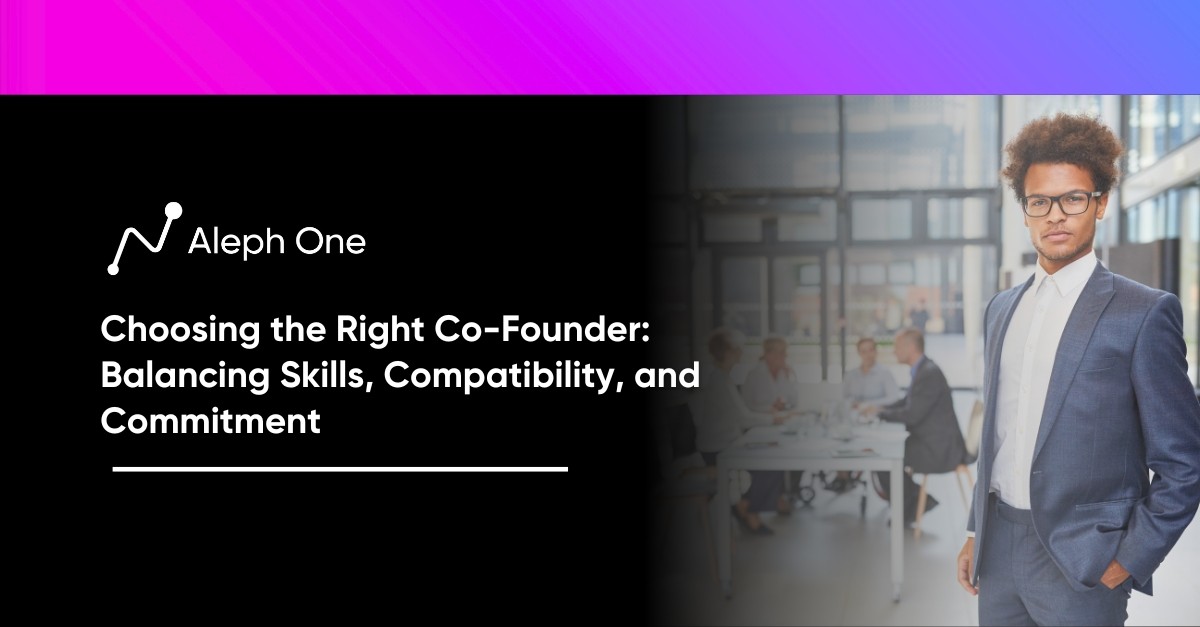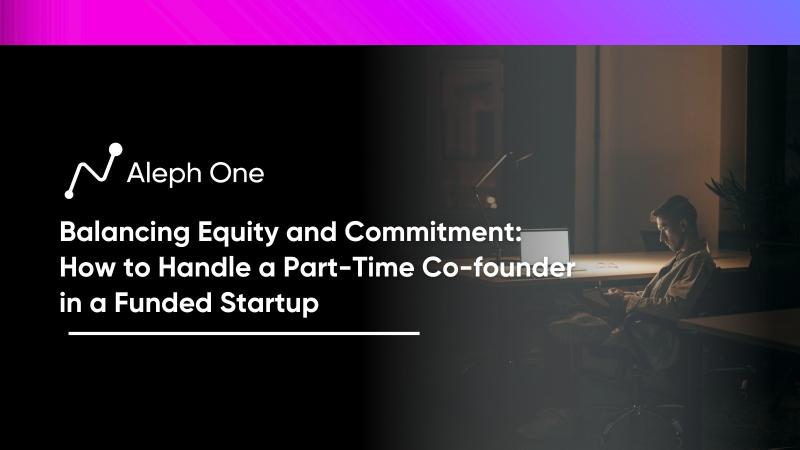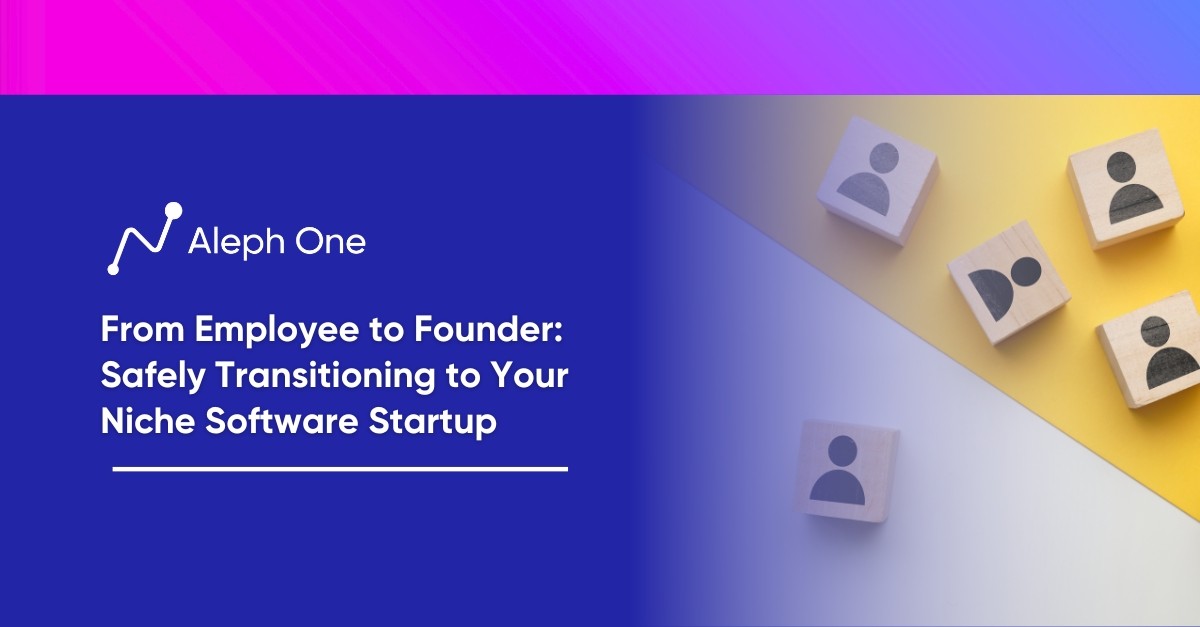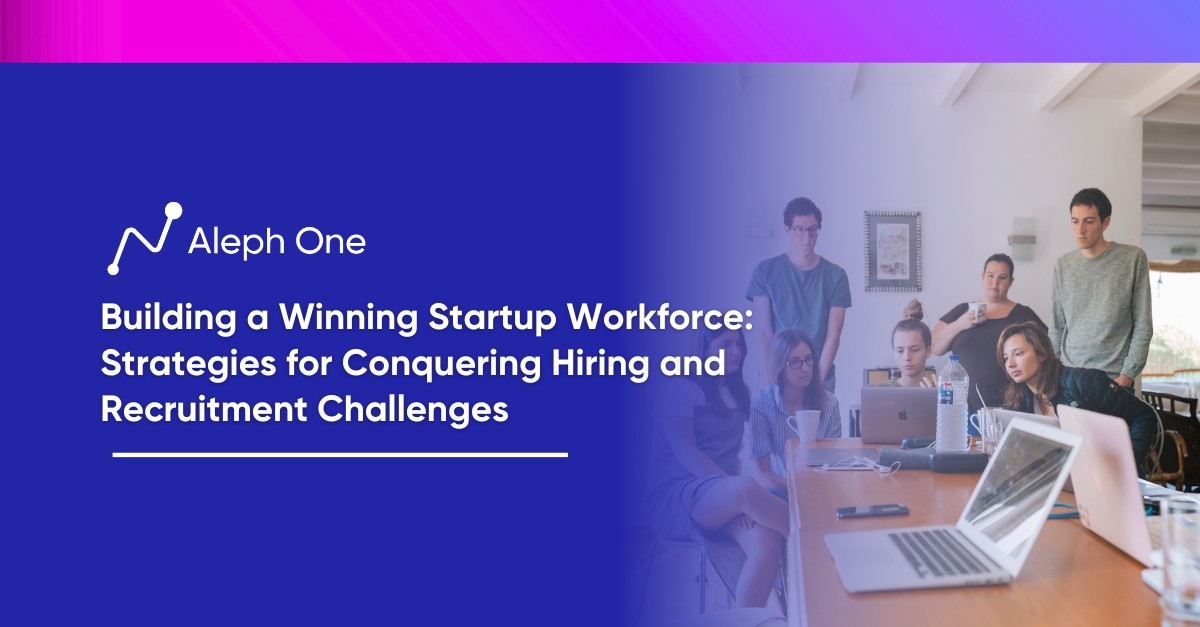Let’s work together to build something amazing. Share your project details and our team will reply to figure out the next steps to your success.

Choosing the right co-founder is a critical decision that can significantly impact the success of a startup. However, it’s essential to look beyond skills alone and consider factors like work styles, values, and commitment. This article explores the importance of compatibility in these areas. It provides insights on assessing soft skills, discussing shared passion and vision, checking references and work history for signs of commitment, testing compatibility through collaboration, and making formal co-founder agreements. By considering these aspects, entrepreneurs can lay a solid foundation for a strong and thriving partnership that can withstand the challenges of startup life.

Look Beyond Skills: Focus on Work Styles and Values
In the excitement of finding a co-founder with the perfect complementary skillset, it’s easy to overlook deeper issues of work styles, values, and priorities. But a mismatch here can lead to conflict that undermines the partnership. Look for a co-founder with the right skills who share your approach to work-life balance, risk tolerance, growth ambitions, and more.
Discuss Your Priorities
For example, if you prefer to work intense hours to scale fast while your co-founder values work-life balance, tensions may arise over the time required to complete the work. Or, if you have a higher risk tolerance and see failure as a learning opportunity, but your co-founder is more cautious, you may have differing views on critical strategic decisions. Different priorities for growth and exit could also lead to mismatched expectations if aligned upfront.
Communicate Your Work Styles
Discuss your work habits, priorities, and values to ensure you share a similar philosophy toward building a company. Ask about previous experiences where work styles or risk tolerance caused conflict to see how values were navigated. Look for evidence that your co-founder can understand other perspectives, find a compromise, and be flexible when needed.
Compatibility is Essential
A shared passion for the work is essential, but compatible work styles and values determine a partnership’s longevity. With open conversations about each other’s tendencies and priorities, co-founders can anticipate points of friction, clarify expectations and build a partnership poised to withstand the pressures of startup life. But without this alignment, even the most passionate and skilled co-founders may struggle. So look beyond skills alone to find a co-founder with whom you share a compatible vision for the product and the journey of building a company. That journey can be enriched with the right person by your side. With the wrong match, it may threaten to derail your startup dreams.
Assess Soft Skills: Emotional Intelligence is Key
A co-founder’s soft skills and emotional intelligence are as essential as their technical skills or industry experience. Emotional intelligence is the ability to perceive, control, and evaluate emotions. For co-founders, key elements include communicating effectively, empathizing with different perspectives, resolving conflicts constructively, and handling stressful situations with composure.
Emotional Intelligence
Startups fail because of co-founder conflict and lack of emotional intelligence. Co-founders must resolve differences in opinion, give feedback, or maintain morale during difficult times. This often leads to power struggles, resentment, and burnout. Co-founders with strong emotional intelligence can have constructive debates, share hard truths, and support each other through failures.
Understands Perspectives
When evaluating potential co-founders, look for signs that they can articulate their emotions and understand other perspectives. Ask them about a time they disagreed with a colleague and how they resolved it. Discuss examples of stressful situations they’ve navigated at work and look for signs they approached with patience, flexibility, and empathy. Their answers can reveal a lot about how they may handle conflict, communicate in crises, and emotionally support their co-founders.
Co-founder Test Project
It may also help to run a “co-founder test project” where you collaborate on a small challenge. This lets you see firsthand how they communicate, give and receive feedback, and problem-solve in stressful situations. Look for signs that they remain open-minded, composed, and solution-focused.
While technical skills are necessary, emotional intelligence is the “x-factor” to determine if you can build a healthy, sustainable working relationship as a co-founder. With open communication and shared values, co-founders with solid and soft skills can overcome almost any challenge or disagreement. But without this foundation, no amount of passion or experience can save a startup from co-founder conflict.
Ask the Right Questions: Look for Shared Passion and Vision
When evaluating a potential co-founder, it’s critical to ask probing questions to determine if you share the same passion for the problem you want to solve and vision for how to build the company. Research from the Arthur Rock Center for Entrepreneurship at Harvard Business School emphasizes the importance of co-founder compatibility in critical areas like passion for the business, vision for company culture, ability to attract talent, and comfort with fundraising.
Find Out Their Passions
To assess passion, ask questions like:
- Why are you drawn to this idea?
- What’s your motivation for solving this problem?
- How did you first identify this opportunity?
Compatible co-founders will share stories of frustration with the current state of things and a drive to make a meaningful impact. Their motivations and origin stories will align with your own.
Vision for Company Culture
Discussing the vision for company culture, values, and work environment is also crucial. Ask questions such as:
- What kind of culture do you envision building?
- What are your top priorities and values?
- What would your ideal work environment look and feel like?
Look for visions that match your views on work-life balance, inclusiveness, risk-taking, and growth.
Attracting and Developing Talent
Probing a potential co-founder’s vision for attracting and developing talent is also essential. Discuss questions like:
- What attributes would you look for in early team members?
- How would you motivate and retain top talent?
- How would you envision building a highly skilled team?
Seek those with a vision that aligns with your own regarding hiring the best, fostering talent, and creating growth opportunities.
Fundraising and Risk-taking
Finally, explore your comfort with fundraising and risk-taking. Discuss:
- How would you approach fundraising for the business?
- What level of risk?
Look for co-founders with a similar appetite for risk and a shared understanding of how to fundraise to support critical milestones.
Ultimately, the goal is to find a co-founder with whom you share passion, vision, and values in a deep and nuanced way. Don’t settle for surface-level alignment—probe for detailed answers to understand their perspectives fully. This upfront work will build the foundation for a successful long-term partnership.
Check References and Work History: Look for Signs of Commitment
A potential co-founder’s work history and references can provide necessary signals about their commitment to building a startup. Look for experiences demonstrating their ability to persevere through challenges and see projects through to completion. For example, have they previously worked at an early-stage startup where they contributed heavily during extended hours to ship a product? Or have they launched their own small business or side project, showing the dedication required to make that successful?
Work History Reveals Priorities and Values
Discussing a candidate’s work history can also reveal their priorities and values. For example, do they change jobs frequently, indicating a lack of long-term commitment? Or have they been promoted steadily within companies, showing their ability to build lasting relationships and contribute at a high level? Speaking with their references can provide extra color on these experiences to determine if their version of events matches what happened.
Founder Commitment and Perseverance
While skills and experience are essential, a co-founder’s commitment and perseverance are crucial. Building a startup is an emotional rollercoaster filled with highs and lows that will test the resolve of any founder. Look for signs that a potential co-founder can stick with complex problems and see them through rather than jumping ship at the first sign of struggles or obstacles.
Motivation and Mindset
Past achievements also matter less than the ability and willingness to push forward through uncertainty. Don’t just look for a track record of past wins or successes. Look for the motivation and mindset that drove those wins, which are what will sustain them as a co-founder when times get tough. Ask about experiences where they faced failures or setbacks, and see how they speak about persevering and overcoming them. Look for determination and grit to serve your startup well through all the challenges of finding product-market fit and scaling.
Test Compatibility Through Collaboration
One of the best ways to evaluate a potential co-founder is to collaborate with them on a small project. Working together, even on a simulated startup project, can reveal much more about someone’s work style, skills, and compatibility than a series of interviews alone.
How to Create a Co-founder Test Project
To test compatibility, design a “co-founder test project” that requires you to work through uncertainties, solve problems together, and make decisions as a team. This could be building a basic product prototype, creating a pitch deck to present to potential investors, or launching a small pilot program to get customer feedback. Whatever the project, it should be complex enough to require intense collaboration over a short period.
Assess the Potential Co-founder
Pay close attention to how the potential co-founder handles ambiguity, deals with conflicts or differences of opinion, take feedback, and contributes to critical decisions. Look for signs that their working style aligns with your own regarding risk tolerance, need for structure, communication preferences, and other soft skills. Discuss how you each felt about the experience and what you learned about working together. This can help address any concerns early on and set the right expectations for partnering well.
Examples of Test Projects
Other co-founders have used test projects like designing a basic website, developing an app prototype, drafting a business plan, or even organizing a local event together. The key is choosing a project that compresses the experience of early-stage startup work into a short time. While not perfectly replicating the long-term commitment required for a startup, a well-designed test project can reveal risks around co-founder compatibility that save much pain down the road.
The time invested in collaborating on a test project upfront is well worth it. With the right co-founder, building a startup is challenging enough without the added struggle of incompatible working styles and mismatched priorities.
Make Co-Founder Agreements: Clarify Expectations Upfront
One of the co-founders’ most significant mistakes is failing to have serious conversations about expectations upfront. To set your startup up for success, take the time to make formal co-founder agreements before officially launching. These agreements clarify equity splits, responsibilities, commitment levels, exit options, etc. While these conversations can be uncomfortable, addressing difficult topics in advance helps avoid confusion and conflict.
Equity Splits
For equity splits, determine percentages based on experience, skills, network, and financial investment. But also consider soft factors like passion, values, and work ethic. Discuss how equity will evolve as roles and contributions change. For responsibilities, specify individual parts and agree on how you will divide and share leadership duties. Discuss both day-to-day responsibilities as well as higher-level decisions.
Terms of Commitment
Discuss how much time each founder intends to dedicate now and in the future. Agree on minimum work requirements and consequences if those are not met. Also, determine each founder’s financial commitment to the startup and their ability to contribute resources. Discuss each founder’s exit options, like the ability to be bought out if needed. Establish a buy-sell agreement and valuation process.
Beyond legal agreements
Have open conversations about your vision, values, work styles, and priorities. Discuss the founders’ hopes and expectations for work-life balance, company culture, growth, risks, and fundraising. Before moving forward, have a shared vision of the startup’s mission and values. Agree on how you resolve differences of opinions or conflicts.
Find The Right Co-founder For Your Startup
While these co-founder conversations often feel tedious, they are essential to set your partnership and company up for success. Taking the time to clarify expectations, determine equitable agreements, and build a shared vision will help avoid confusion, conflict, and legal issues as your startup grows.
Get the latest news and updates from Aleph One in your inbox.



